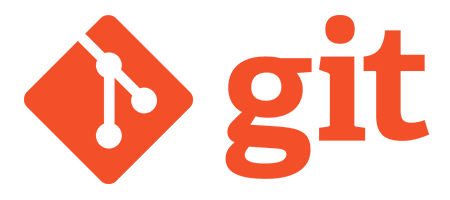How To Install Git on Ubuntu 24.04 LTS

In this tutorial, we will show you how to install Git on Ubuntu 24.04 LTS. Git is a powerful and widely used distributed version control system that allows developers to track changes in their codebase, collaborate with others, and manage different versions of their projects efficiently.
This article assumes you have at least basic knowledge of Linux, know how to use the shell, and most importantly, you host your site on your own VPS. The installation is quite simple and assumes you are running in the root account, if not you may need to add ‘sudo‘ to the commands to get root privileges. I will show you the step-by-step installation of Git on Ubuntu 24.04 (Noble Numbat). You can follow the same instructions for Ubuntu 22.04 and any other Debian-based distribution like Linux Mint, Elementary OS, Pop!_OS, and more as well.
Prerequisites
- A server running one of the following operating systems: Ubuntu and any other Debian-based distribution like Linux Mint.
- It’s recommended that you use a fresh OS install to prevent any potential issues.
- SSH access to the server (or just open Terminal if you’re on a desktop).
- An active internet connection. You’ll need an internet connection to download the necessary packages and dependencies.
- An Ubuntu 24.04 system with root access or a user with sudo privileges.
Install Git on Ubuntu 24.04 LTS Noble Numbat
Step 1. Updating the Package Repository.
It’s crucial to keep your system up-to-date to avoid potential compatibility issues and security vulnerabilities. Open your terminal and run the following commands to update the package lists and upgrade installed packages:
sudo apt update
This command will fetch the latest package information from the Ubuntu repositories, allowing you to install the most recent version of Git and its dependencies. Updating the package repository is crucial to maintaining the security and stability of your system.
Step 2. Installing Git on Ubuntu 24.04.
- Method 1: Installing Git Using APT
The easiest and most straightforward way to install Git on Ubuntu 24.04 LTS is through the APT package manager. APT (Advanced Package Tool) is a command-line utility that simplifies the process of installing, updating, and removing software packages on Debian-based Linux distributions, including Ubuntu. Run the following command to install Git:
sudo apt install git
Verify the installation by checking the Git version:
git --version
This method is recommended for most users as it ensures a stable and well-tested version of Git is installed on your system. Additionally, any future updates to Git will be automatically handled by the package manager, keeping your installation up-to-date with minimal effort.
- Method 2: Installing Git from Source
While installing Git using APT is the preferred method for most users, there may be situations where you need to install Git from the source. This approach can be beneficial if you require the latest version of Git or if you want to customize the installation with specific options.
First, install the necessary dependencies:
sudo apt install make libssl-dev libghc-zlib-dev libcurl4-gnutls-dev libexpat1-dev gettext unzip
Next, download the latest Git source code from the official Git website:
wget https://mirrors.edge.kernel.org/pub/software/scm/git/git-2.9.4.tar.gz
Extract the downloaded archive:
tar -zxf git-2.9.4.tar.gz
Change into the extracted directory:
cd git-2.9.4
Compile and install Git:
make prefix=/usr/local all sudo make prefix=/usr/local install
This method allows you to install the latest version of Git directly from the source code. However, it’s important to note that you’ll need to manually update Git when a new version is released, as the package manager won’t handle updates automatically.
Step 3. Configuring Git.
After installing Git, it’s recommended to configure it with your user information. This information will be associated with your commits, making it easier to track changes and collaborate with others.
- Set your user name:
git config --global user.name "Your Name"
- Set your email address:
git config --global user.email "your@email.com"
Step 4. Creating Your First Git Repository.
Now that you have Git installed and configured, let’s create your first Git repository. A repository is a directory where Git tracks and manages changes to your project files.
-
- Navigate to the directory where you want to create your new repository.
- Initialize a new Git repository:
git init
This command creates a new .git subdirectory in your current working directory, which contains all the necessary Git metadata and configuration files.
-
- Create a new file or make changes to an existing file in your project.
- Add the file(s) to the staging area:
git add [file_name]
-
- Commit the changes with a descriptive message:
git commit -m "Initial commit"
Step 5. Advanced Git Features and Commands.
Beyond basic setup, Git offers advanced features like branching and merging, which are essential for managing different development stages. For instance, create a new branch with:
git branch new-feature
Switch between branches using:
git checkout new-feature
Merge completed features into your main branch with:
git merge new-feature
Explore other advanced commands such as git rebase and git stash to manage your code efficiently.
Congratulations! You have successfully installed Git. Thanks for using this tutorial for installing Git on the Ubuntu 24.04 LTS system. For additional help or useful information, we recommend you check the Git website.